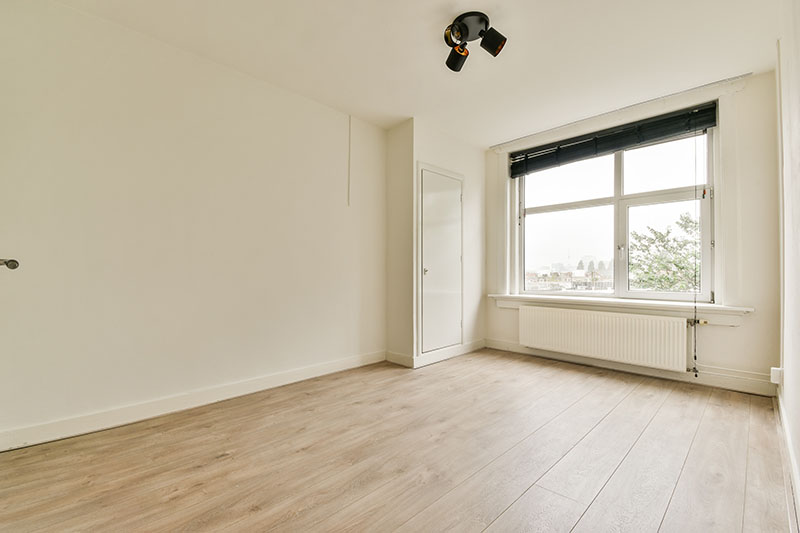1 min read
Vacant possession vs. subject to tenancy. What you need to know before buying or selling a tenanted property in Victoria.
 Lindel Enticott
Updated on November 10, 2025
Lindel Enticott
Updated on November 10, 2025

If you're buying or selling a residential property in Victoria that's currently tenanted, one question matters a lot: Will the property settle as a vacant home (without occupants) or with a tenant remaining in the home?
This issue is more than just a tickbox....

The Vacant Possession V Subject to Tenancy decision impacts settlement timelines and legal obligations. If the wrong decision is made or, the decision is misunderstood, it can lead to serious consequences.
At Prepared, we ensure buyers and sellers make informed, confident decisions. Here’s what you need to know about navigating tenancy in a property sale.
What does “Vacant Possession” mean?
Vacant possession means the property must be vacant (legally and physically unoccupied) at settlement. It is the seller’s responsibility to ensure the tenant has moved out.
If the tenant hasn’t vacated (even if valid notice was given) the seller is in breach of contract.
The purchaser may be entitled to:
- Terminate the contract and recover their deposit
- Claim compensation (damages)
Vendors: You must make sure the settlement timelines allow for proper notice periods to expire and time for your agent to perform any exit inspections.
Sellers may misunderstand periodic tenancy notice requirements and assume it is 30 days’ notice.
You must comply with the Residential Tenancies Act 1997 and notice requirements. Seek advice from your managing agent, Consumer Affairs notice period table and check your tenancy agreement before deciding.

What does “Subject to Tenancy” mean?
When a property is sold subject to tenancy, the buyer agrees to take over the lease. The tenant stays in place, and the buyer becomes the new landlord at settlement.
The contract must clearly specify that the sale is subject to tenancy. If it doesn't, the default legal position is that vacant possession is required.
Buyers: This option might suit you if you’re an investor, but it comes with risk:
- If rent is overdue, you typically can’t adjust for it at settlement
- You’ll assume all landlord responsibilities
- If there are unresolved tenancy issues, they become yours to manage
You can review consumer affairs- renting fundamentals here.
Which option is right for you?
Vendors:
-
Vacant possession may attract a wider pool of buyers, especially owner-occupiers, and could lead to a better sale price.
-
Subject to tenancy may have financial advantages such as rent during the sale and conveyance period and reduced holding costs. This option reduces the risk to you if the tenant is unlikely to vacate, especially for short settlement periods or complex tenancy terms.
Always seek advice before serving a notice to vacate. If you issue it too early and the sale falls through, you may unnecessarily disrupt the tenant or lose your income stream.
Purchasers:
Owner-Occupiers:
-
Advocate for vacant possession if you intend to live in the property.
-
Never assume a tenant will leave on time without legal enforcement.
-
Buying subject to tenancy means you are responsible for legally ending the tenancy. If a tenant doesn't duly vacate, you may need to initiate VCAT proceedings.
Investors:
-
Assess the current lease, tenant payment history, and whether the rent aligns with market conditions.
-
Decide whether a stable lease is an asset to you or whether vacant possession gives you better flexibility for your intended purposes.
When buying or selling a tenanted property, the difference between vacant possession and subject to tenancy is more than just a tick box in the contract. It requires an evaluation of legal risk, timing, and strategy. Done right, it’s seamless. Misunderstood, it’s costly.
Selling? Get advice before you offer vacant possession.
Buying? Know what you’re inheriting and what you’re legally entitled to.
The information is general in nature and does not constitute legal advice. If you are buying or selling, please contact us to request legal advice.

Understanding the statement of adjustments: What Victorian purchasers and vendors need to know before settlement
When buying or selling a property in Victoria, one conveyancing process that plays a crucial role in ensuring fairness and accuracy at settlement...
.jpg)

